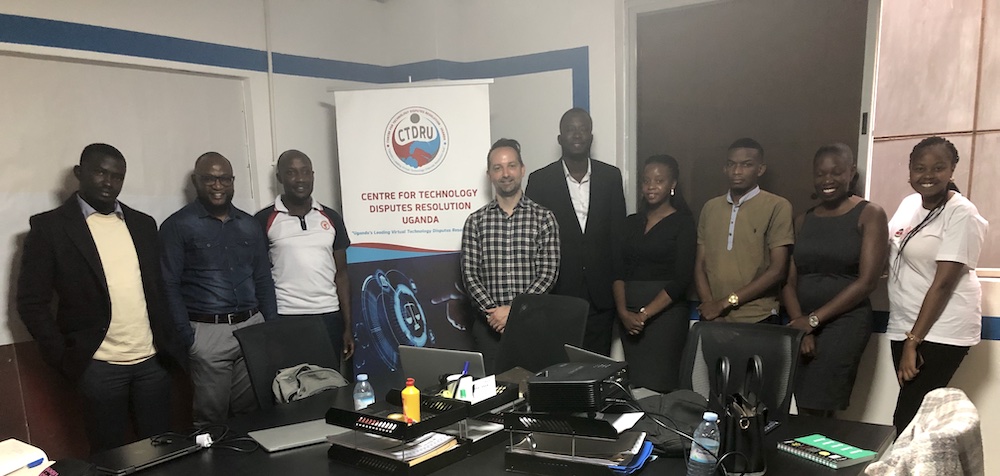Empowering Consumers: The Impact of Legal Aid on Mobile Money Disputes
Silver Kayondo, a fintech lawyer in Uganda, has witnessed time and time again ordinary people in Uganda struggling with mobile money issues and receiving little to no help from mobile network operators (MNOs). This is unsurprising, considering that IPA research in Uganda found that 78 percent of survey respondents encountered at least one consumer protection challenge with their mobile financial services. In Uganda, and in many low- and middle-income countries in the world, MNOs are few and large, holding significant market power over consumers. There are limited ways to make things right—so-called redress mechanisms—so consumers with a challenge tend not to approach their provider. When they do, they abandon their efforts quickly, report lower trust in the system, and some even end up not using formal financial services anymore. But instead of letting this issue persist, Silver decided to take matters into his own hands. He created the Center of Technology Disputes Resolution - Uganda (CTDR-U), where Ugandan law students address aggrieved consumers’ mobile money complaints by taking the matter to the MNOs directly.
Similar to a previous study conducted in Kenya, Matthieu Chemin partnered with Silver to provide free legal aid to help resolve consumer complaints against MNOs. Funded by IPA through the Consumer Protection Research Initiative, in 2022, a survey team from IPA Uganda visited people door-to-door in Kampala and found 818 ordinary people who had a dispute with their MNO. We forwarded half of these disputes to CTDR-U, who immediately got to work. The law students at CTDR-U helped with:
- advising on the necessary documents to present or on what to say at the customer care centers
- visiting centers in person with clients
- writing official letters to the MNOs demanding a resolution
- escalating the matter to regulators
- initiating official legal action if appropriate measures were not taken by MNOs

The project was not without its challenges. The MNOs were sometimes slow to respond. The Minister of Finance (Planning and Economic Development) passed the National Payment Systems (Consumer Protection) Regulations in 2022, which mandated MNOs to resolve all matters in 24 hours, yet none of our 20+ cases going through this new redress mechanism were addressed. The courts did not agree to CTDR-U filing a case with them due to jurisdictional and pecuniary limitations of the micro-disputes.
Despite these obstacles, we found that CTDR-U increased the resolution of mobile money disputes by 23 percent in the treatment group. Usage and trust in the system improved as well. This unlocked the positive effects usually associated with mobile money (Aker et al., 2016; Riley, 2018; Suri and Jack, 2016): an increase in access to credit and in risk-sharing—people receiving a negative shock receive more remittances from others in their social networks to address these shocks. Additionally, the study produced similar benefits for both men and women. This suggests that the intervention was equally effective across genders. As a result, future studies using this type of intervention may not need to adopt a gender-specific approach.
As we continue to conduct research on new ways to protect consumers from financial risks, there are three important conclusions from this research that we should keep in mind:
Legal aid is currently necessary to protect consumers against the practices of large MNOs holding significant market power.
However, a robust legal framework that protects consumers is indispensable for the sustained success of mobile money markets and should be the ultimate goal. In fact, more cooperation from the regulators and courts in this project would have significantly improved dispute resolution. According to our calculations, this initiative would have been cost-beneficial (despite the very small sums of money involved) if the MNOs had complied with the regulations drafted by the regulators.
The type of MNO dispute may impact the likelihood of resolution.
We broke cases down into three categories: cases where the MNO is at fault (e.g., money sent but not received); fraud; and money missing from the account. We found that the intervention works particularly well for the first type of case, probably because the MNO is the only counterparty in such cases and there is clear evidence that the money was sent but not received. We found less of an effect for fraud cases. These cases are criminal in nature and involve the police who must find the fraudster. These are much more difficult to resolve. Cases with “money missing from account” are also harder to sort out, since there can be a lack of evidence in some cases. A scalable and cost-efficient version of our intervention would focus on the first types of cases, with a tiered approach whereby simple cases that only necessitate persistent visits to customer care centers could be handled by paralegals.
Research now shows that better access to legal institutions matters for the process of economic development.
In both Kenya and Uganda, we found that legal aid allowed ordinary people at the base of the pyramid to defend their rights and improve their position. Better access to unbiased legal institutions levels the playing field in favor of regular folks against the wealthy and powerful.
To learn more about this project, read the project summary and watch the webinar recording.












